by Milo Hsieh
語言:
English
Photo Credit: Tsai Ing-wen/Facebook
A FIERCE CONFRONTATION took place between Chinese president Xi Jinping and Taiwanese president Tsai Ing-wen over the new year. In response to statements by Xi on the 40th anniversary of the “Message to the Compatriots of Taiwan,” which could be described as a threat, Tsai’s quick and immediate response rallied the Taiwanese public and pressured the media and forced politicians across the political spectrum to affirm their stances in response.
This includes the KMT. Historically, the KMT and its politicians have built a political platform promoting prosperity based on exchanges and closer ties between China and Taiwan. Its members have advocated the recognition of the so-called “1992 Consensus,” a claimed oral agreement made by unofficial diplomatic contact between the Strait Exchange Foundation of Taiwan and Association for Relations Across the Taiwan Straits that supposedly took place in 1992.
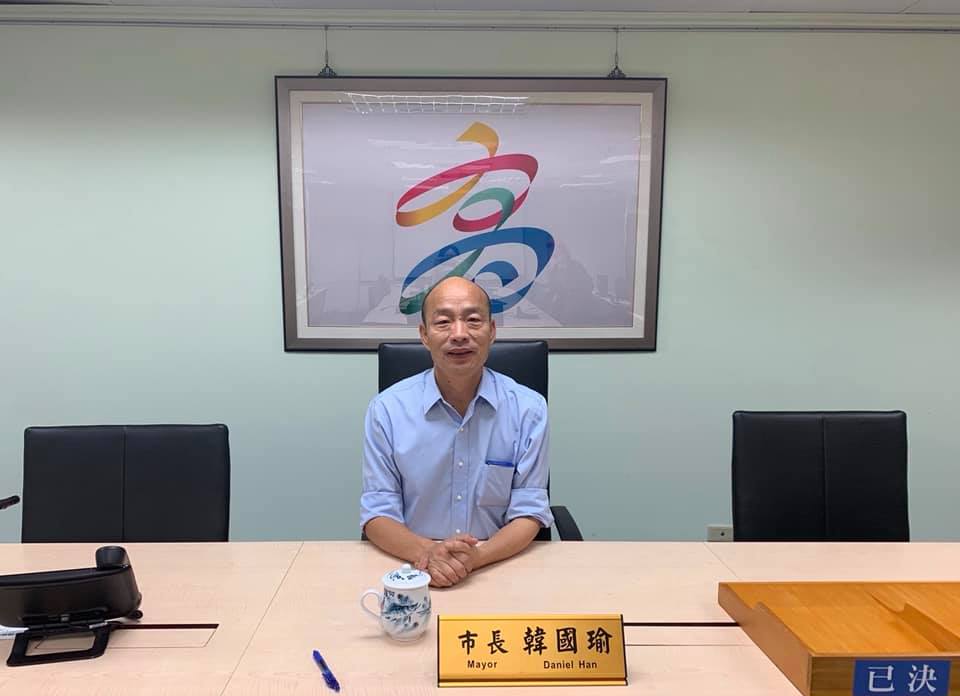 Kaohsiung mayor Han Kuo-yu. Photo credit: Han Kuo-yu/Facebook
Kaohsiung mayor Han Kuo-yu. Photo credit: Han Kuo-yu/Facebook
After Tsai’s statements, however, the KMT was forced to clarify its stance to reject Xi’s “One country, two systems” proposal, to be consistent with Tsai’s response in some respects. Two high-profile mayors, the mayors Taipei and Kaohsiung, two most populous cities whose combined population make up about a quarter of Taiwan’s population, have also reoriented their stance in order to accommodate the amount of support Tsai gathered with her response.
Despite the reorientations of the two mayors, KMT heavyweights have attempted to push back against Tsai. Within the KMT itself, both Eric Chu, a past KMT chairperson and the KMT presidential candidate in 2016, and Wu Den-yih, current KMT chairperson and vice president under President Ma Ying-Jeou, have claimed that the 1992 Consensus is not the same as the” two countries, one system” doctrine. Though both are politically influential, the fact that neither currently hold elected office or any institutional power besides party roles is juxtaposed with the accommodative stances of the mayors who hold power, but who are not necessarily leaders within party politics.
Mayor Han Kuo-yu of Kaohsiung had generally supported closer ties with China and even once openly proposed pressuring the central government of Taiwan to liberalize relations with China. After Tsai’s statement, however, he has now conceded space to Tsai’s administration on the issue of cross strait relations, publicly claiming there is a need to “clear doubts regarding the resolve of the Taiwanese people for democracy and freedom” (不能懷疑台灣人民追求民主自由的決心).
Mayor Ko Wen-je of Taipei also repositioned his cross-strait stance with the acknowledgment that Xi’s assumption of the status of Taiwan “has not yet been accepted by the mainstream public opinion of the Taiwanese people” (還沒被台灣主流民意接受) and that “there is still distance before a mindful agreement” (離心靈契合還有點距離). Ko also stated, similar to Han, that there is currently need to leave the topic to the Tsai administration. This is a gradual change from his previous insistence on the principle of “one family on both sides of the Taiwan Straits” (兩岸一家親) and conducting city-based cross-strait exchanges autonomously from the central government (雙城論壇) despite Tsai’s opposition. Interestingly, Ko has also proposed the need for Taiwan to maintain a strong standing and power internationally, stating that “there would be no fear of hostility if one is to maintain an adequate level of preparation,” (勿恃敵之不來,恃吾有以待之) in a quote from Sun Tzu’s Art of War.
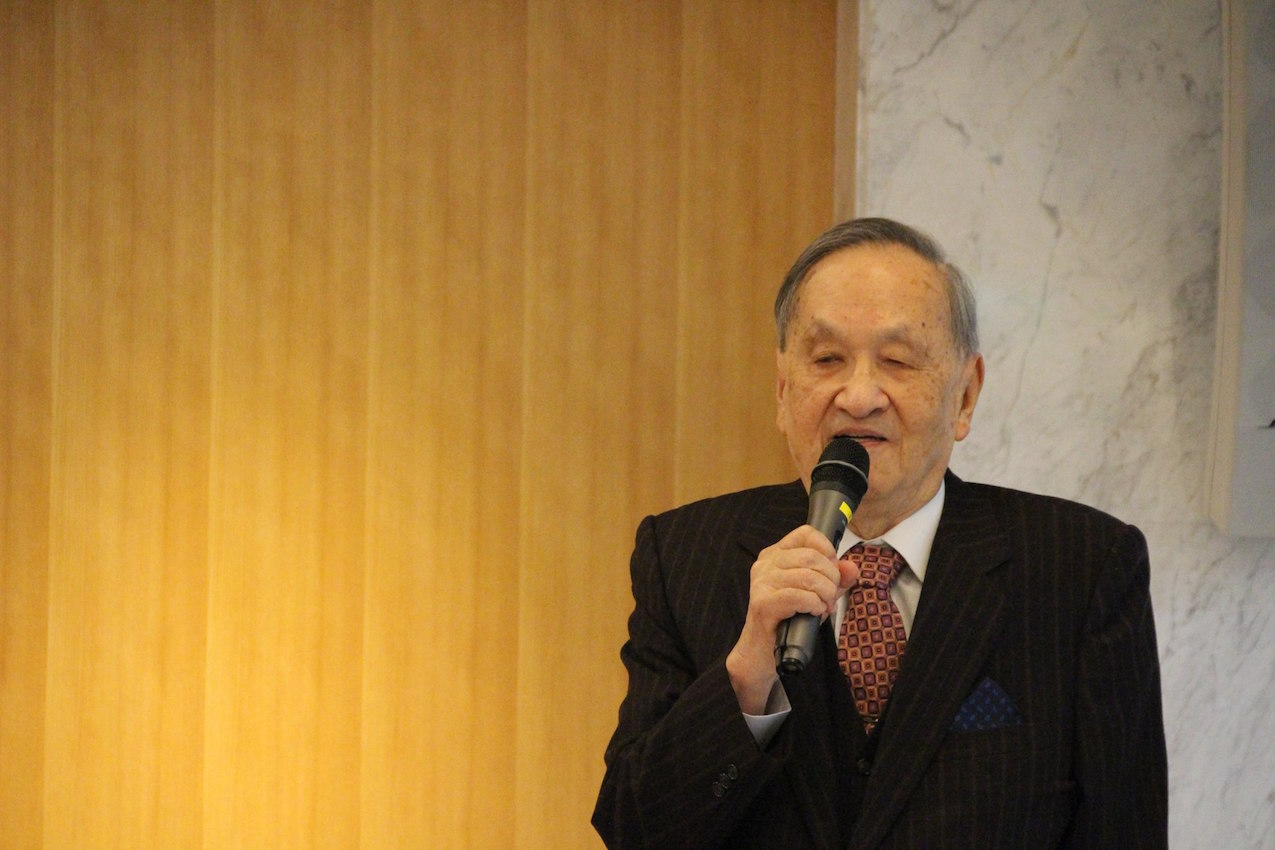 Former DPP presidential candidate Peng Ming-min. Photo credit: 財團法人彭明敏文教基金會/Facebook
Former DPP presidential candidate Peng Ming-min. Photo credit: 財團法人彭明敏文教基金會/Facebook
Both high-profile mayors began to accommodate to Tsai’s policies. Efforts at city-based outreach to China are now much subdued in response to the public rallying behind Tsai’s unusually firm response to China’s threatening rhetoric. The previous tendencies for mayors to try and establish city-based exchanges with China, which platformed well with local voters as a means by which they could increase local prosperity at the cost of national coherence, are now a hard attitude to maintain given the implication that such mayors directly oppose the future of Taiwan’s democracy, something that has slowly become a part of Taiwan’s national identity in past decades.
An attempt by four elders of the DPP to call for Tsai to not run for a second term and commence a de-facto resignation also clashed with Tsai’s announcement, but this has so far been seen as frail and unsuccessful, as the damage done pales in comparison with Tsai’s recent strength. The disruptions caused by this attempt has currently been minor, since while many KMT politicians have been quick to clarify their stances, most DPP politicians have not. Tsai’s past strength has raised possibilities for contenders within her own party for the 2020 presidential election.
But with the letters demanding for her resignations so far not affecting her poise, Tsai has also gathered support from grassroots social media speakers across the political spectrum such as lawyer and writer Liu Chu-yuan (呂秋遠), a liberal, as well as bodybuilder and livestreamer Chen Zhi-han (陳之漢), a far-right populist better known as the owner of a gym (館長). The latter of whom has surprisingly been recently supportive of President Tsai on not only the current issue of Taiwan’s role vis-a-vis China, but also on the on-going African swine flu outbreak. The wide acceptance of Tsai’s support on even a grassroots level can be considered a success for Tsai’s political assertion against China regarding the political status of Taiwan, given the top-down nature of her policies and backlash against her on domestic policy issues as labor reform, pension reform, etc.
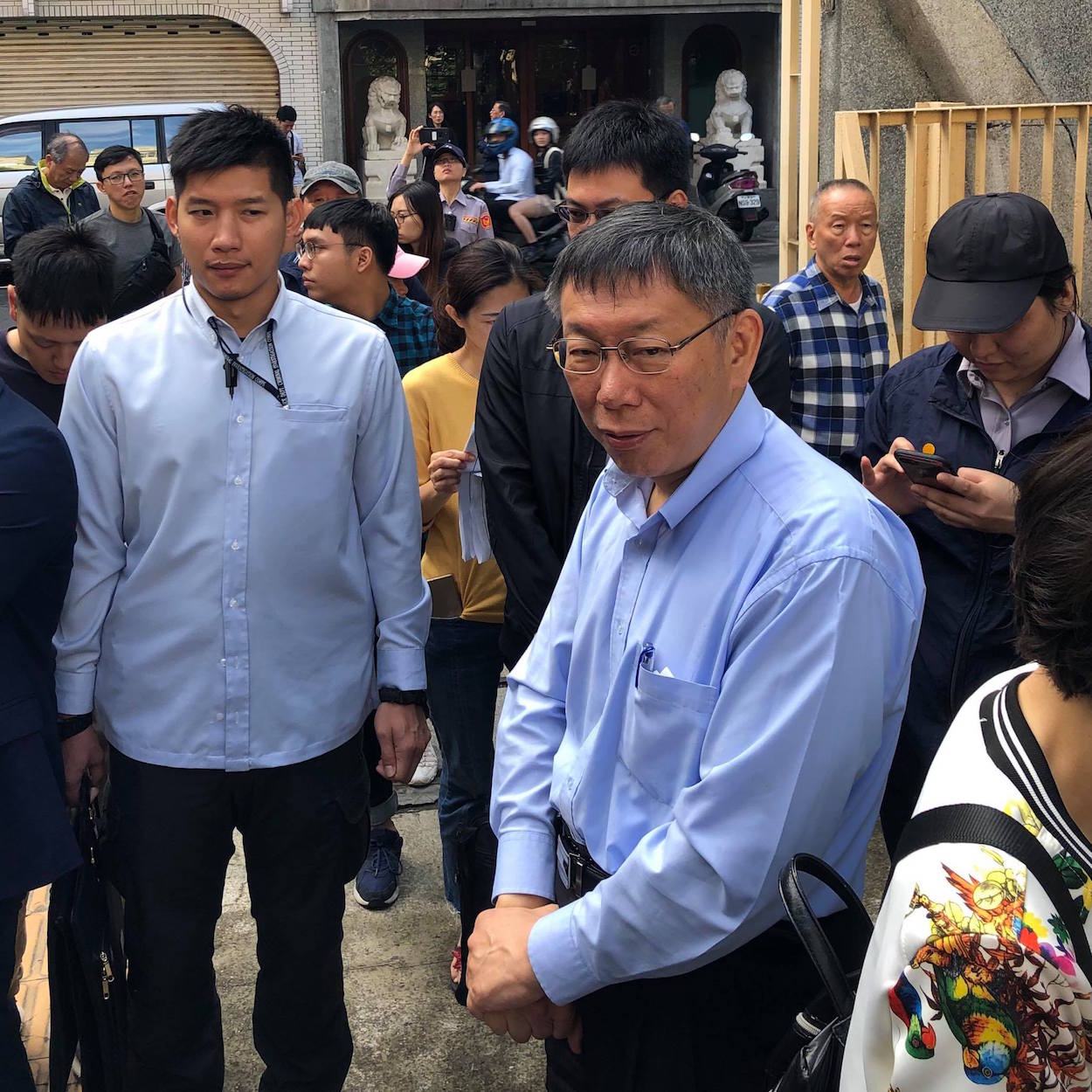 Taipei mayor Ko Wen-je. Photo credit: Ko Wen-je/Facebook
Taipei mayor Ko Wen-je. Photo credit: Ko Wen-je/Facebook
Having survived intense Chinese pressure, discourses from both the center (Mayor Ko) and the right (Mayor Han, KMT, etc), as well as shrugged off calls for resignation from within her party all within a month’s time, President Tsai should utilize her momentum now to reshape Taiwanese identity.
The Tsai administration should take up a position to not only reject the “1992 consensus” but also question its legitimacy and validity. Though China has taken an active stance to interpret it and codify it as an acknowledgment ceding Taiwanese sovereignty to China, the so-called “consensus” remains an ambiguous oral agreement with no texts to officially outline what exactly the terms are or were. Furthermore, it can also be argued that since the “consensus” talk was held prior to Taiwan’s first democratic and popular presidential election in 1996, the representatives of Taiwan did not represent the Taiwanese people at all. President Lee Teng-Hui’s second term was also elected by the National Assembly of 1990, which composed of officials whose term started in 1948 that had indefinitely extended their own term.
The Tsai administration should also widely publicize the case of Hong Kong and its experiences with the “one country, two systems,” in which erosion of democratic values and national identity occurred after the transfer of sovereignty back to China in 1997. Reforms instituted after the transfer provided pro-PRC politicians an unfair amount of representation and power within the Hong Kong government, which in turn allowed Beijing to exert its influence against civil liberties and Hong Kong’s autonomy, which were supposed to be unchanged for another fifty years.
The Tsai administration should, therefore, attempt to construct an identity around the protection of democratic values, human rights, and the concept of being “Taiwanese,” in the context of Chinese interest to take over Taiwan. This “Taiwanese” identity should be built upon the right to self-determination by the Taiwanese people and critical view towards of Chinese influences that have seeped into the everyday life of Taiwan through potential election meddling and demonstrated a reluctance to help Taiwan in face of common threats, such as the spread of the African Swine Fever outbreak.
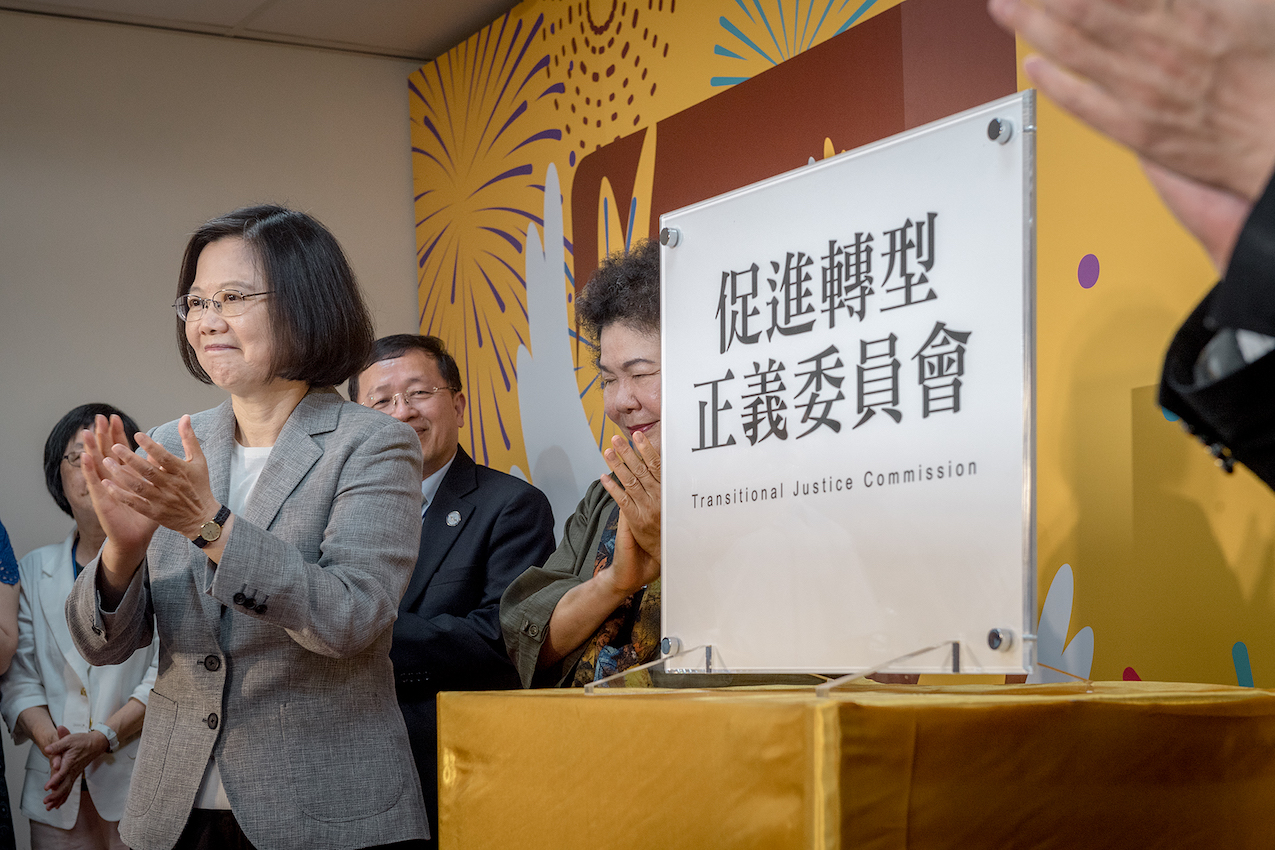 President Tsai Ing-wen at a Transitional Justice Committee event. Photo credit: Presidential Office/Flickr/CC
President Tsai Ing-wen at a Transitional Justice Committee event. Photo credit: Presidential Office/Flickr/CC
The Taiwanese identity is integrated through the pursuit of forms of democratic participation, demonstrated in past years to be highly available through events such as the Sunflower Movement and the introduction of popular referenda. Tsai administration’s effort to establish transition justice through the Transitional Justice Committee (TJC) should be made more visible civil participation, with efforts to make progress more visible to the general public, given the technocratic and opaque nature as well as the tendencies for conservative media to portray the TJC as a tool of political persecution.
Going forward, however, the Tsai administration should be highly aware of its strong leverage against China based on its current military strength as well as very recent assurances by the United States that it wishes to establish a united front against Chinese hostility that includes Taiwan. The Tsai administration thus has a much stronger mandate going forward as well a stronger suggestion of potential military backings, compared to her first two years of office, that Tsai would require to support diplomatic and ideological assertions vis-a-vis China. The passage and the signing of the Asia Reassurance Initiative Act (ARIA). Though ARIA itself is not any additional sort of added security treaty on the real term, the implication of the codified support for Taiwan adds onto the Taiwan Travel Act of 2018 and Taiwan Relations Act of 1979. This codified statement of the Trump Administration’s intent to bring up a stronger stance against China. This signals the shift in the US stance on China from more accommodative to more confrontational, in line with the Tsai Administration’s effort to confront China over conflicts in principles and intentions for Taiwan’s sovereignty.
This recent added layer of support as of 2019, while mostly implicit, should present Tsai with momentum not available to her on the first two years of her office that can be exploited at this point to better promote her domestic agenda. The Tsai administration can now take this opportunity to reinforce the “Taiwanese identity” against efforts by China and domestic conservatives to define the people of Taiwan and China to be one and the same, which fulfills goals for mutual prosperity but at the cost of Taiwan’s right to self-determination and long-term maintenance of sovereignty.
Overall, the Tsai administration must take action at this time to push on the support it has attained internally and externally, especially drawing on domestic support from across the political spectrum, to take the opportunity to define “Taiwanese identity” and its close association with democratic values. By taking this opportunity, President Tsai will regain control of cross-straits policy from mayoral dissidents and rally all of Taiwan to assert opposition to Chinese encroachments. Even the more pro-China, pro-prosperity, and conservative elements of the Taiwanese public stand to benefit from a stronger Taiwanese position.
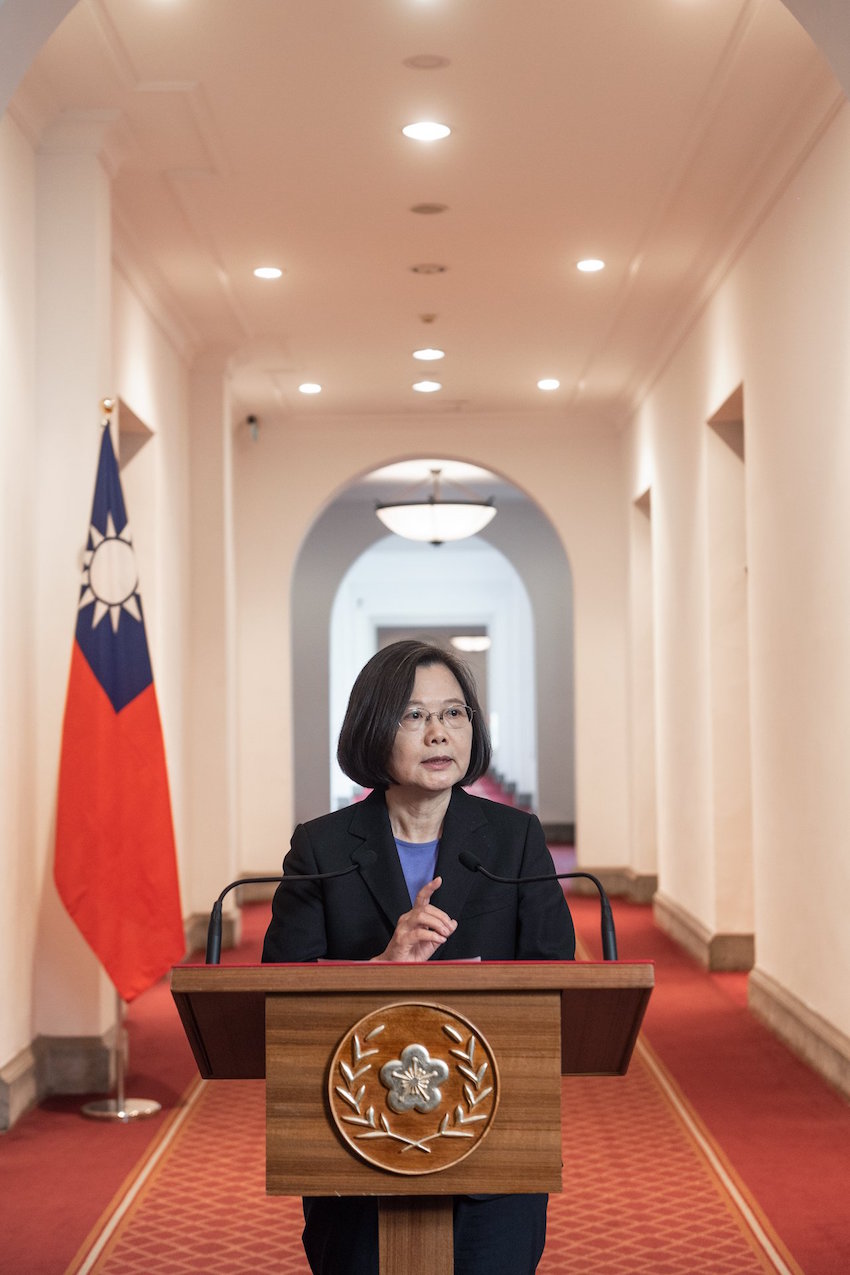 Photo credit: Tsai Ing-wen/Facebook
Photo credit: Tsai Ing-wen/Facebook
Consistent with Ko quoting The Art of War, a strong stance would give Taiwan a better position even if Taiwan wishes to cooperate with China by providing more leverage. As Tsai faces uncertainty within her own party and potentially from the KMT, her current poise and momentum should now be used to assert herself both within DPP and within the Taiwanese political environment.
Tsai Ing-wen and her team need to take the initiative to incorporate democratic values in the culture and identity of all Taiwanese, given a general emphasis on needs for economic growth over maintenance of democratic values, political rights, and civil liberty. By defining that neither the Taiwanese identity nor democratic values in Taiwan can exist without the other, Tsai not only protects better protect Taiwan against the encroachment of China but also asserts ideologies of her own against potential adversaries.

